Dzukou Valley – A Complete Trekking Guide and its Ecosystem
The undulating rolling hills of Dzukou Valley, sprinkled with colorful blooms, stretched with carpet of wild dwarf bamboo exemplify the best craftsmanship of nature. As the dawn swayed by, the silent murmurs of gentle breeze wrapped me in its invisible armor, the sky slowly turned into cobalt blue pushing away the clouds and the sun illuminated the valley in spectacular hues of green and golden.
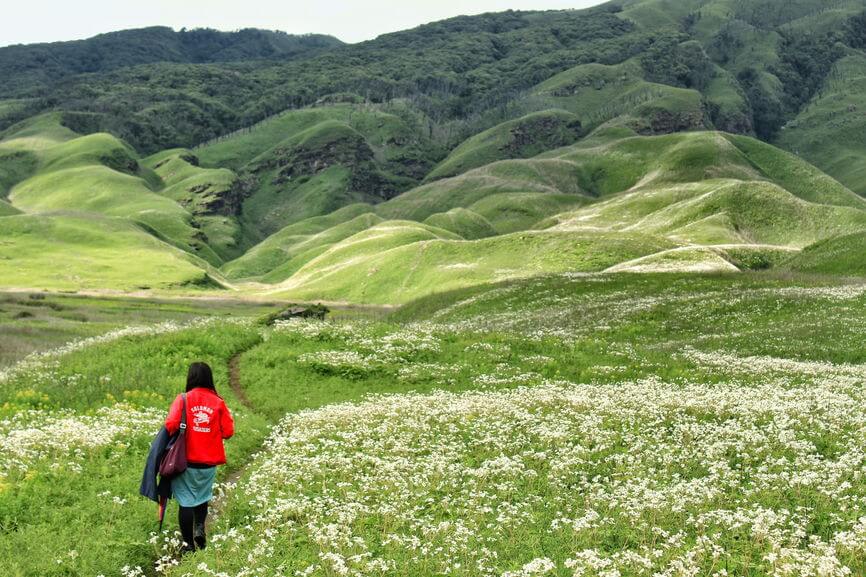
The burnt trees peppered through the valley, reminiscence of two huge forest fires, adds an esoteric element to the expansive vistas. In the misty and sloppy arms of monsoons, the rare Dzukou Lily (Lilium Chitrangadae) makes it unparalleled appearance.
PIN THE POST FOR LATER
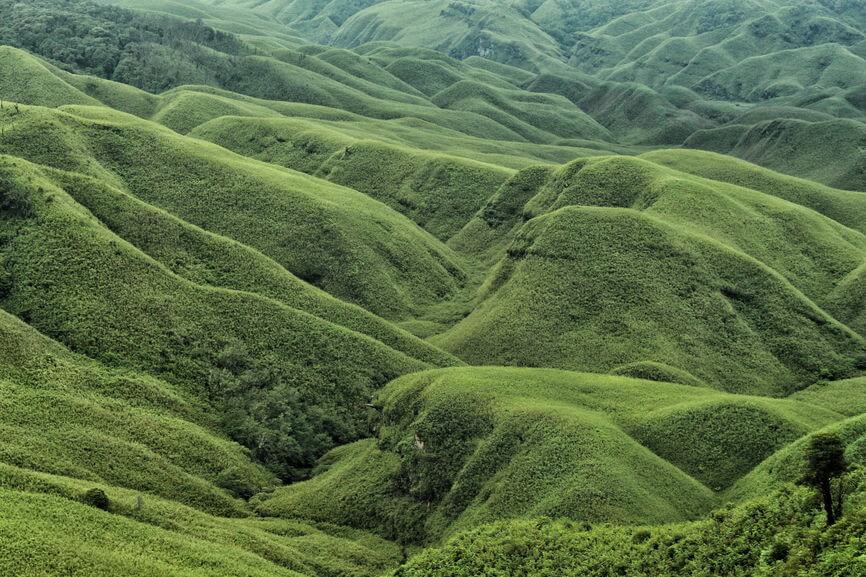
Table of Contents
Dzukou Valley – Where is it located?
At an altitude of 2,452 meters above sea level, the mesmerizing masterpiece of nature spans across the states of Nagaland and Manipur. The picturesque valley peeps above the clouds and open into velvety green treeless knolls, spread as far as eyes can take you. The summers paint a different picture with the valley blooming with colorful flowers but winters turn the valley into a frosty canvas without flowers. The timeless erosion and weathering of the rocks led to the formation of perfectly molded sweeps of hillocks and gave it its distinctive contours.
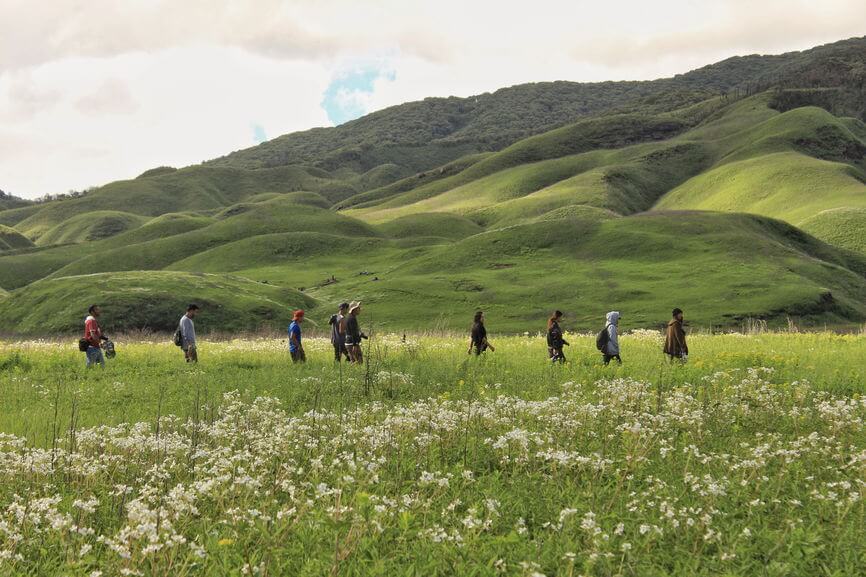
According to Angami dialect, the meaning of “Dzu – ko” means “soulless” and “dull” and this translates into this because of the rough weather conditions unfavorable for harvesting crops. According to legends, ancestors of Angami Tribe tried to establish a new village and settlement in the Dzukou Valley but failed due to the unfavorable weather condition that did not support farming and agriculture. It was considered to be not fit for habitation as it was too cold, nothing edible could grow and lacked trees. There are many myths and legends associated with the valley like existence of a white elephant, healing properties of the river and a place where the dead rest before departing.
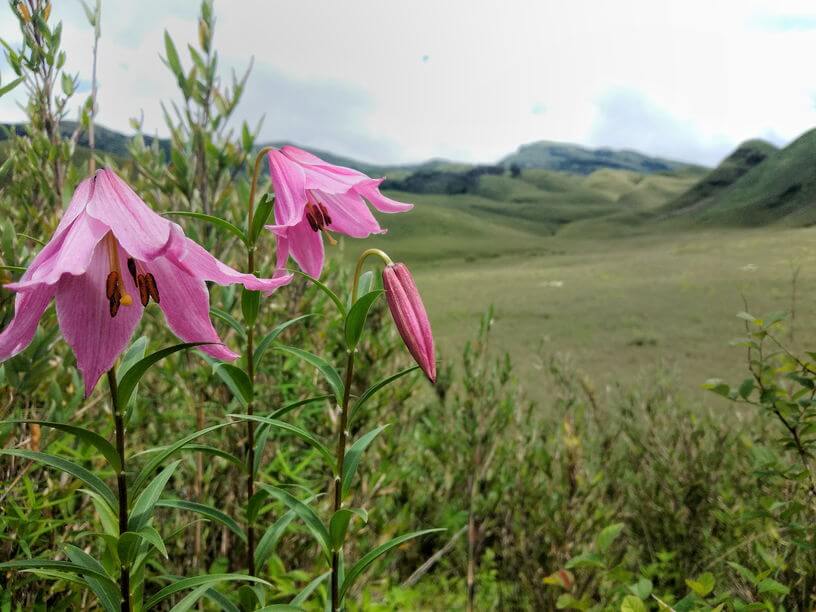
Ecosystem of Dzukou Valley
The ecosystem of the Dzukou Valley favors the growth of the rare Dzukou Lily (Lilium Chitrangadae) from April to August. The endemic flower is a distant cousin of the lighter pinkish shade Shirui Lily (Lilium Mackliniae), a rare species of the Shirui Hills of Manipur. The Dzukou Lily was first identified in 1991 by Late Dr. Hijam Bikramjit, Life Sciences Department, Manipur University on his trek to Dzukou Valley with Manipur Cultural Integration Conference Team. Apart from the endemic variety of lily, many other flowers like Euphorbia sikkimensis, Ranunculus species, Aconitum species etc. adorn the valley in vivid bloom.
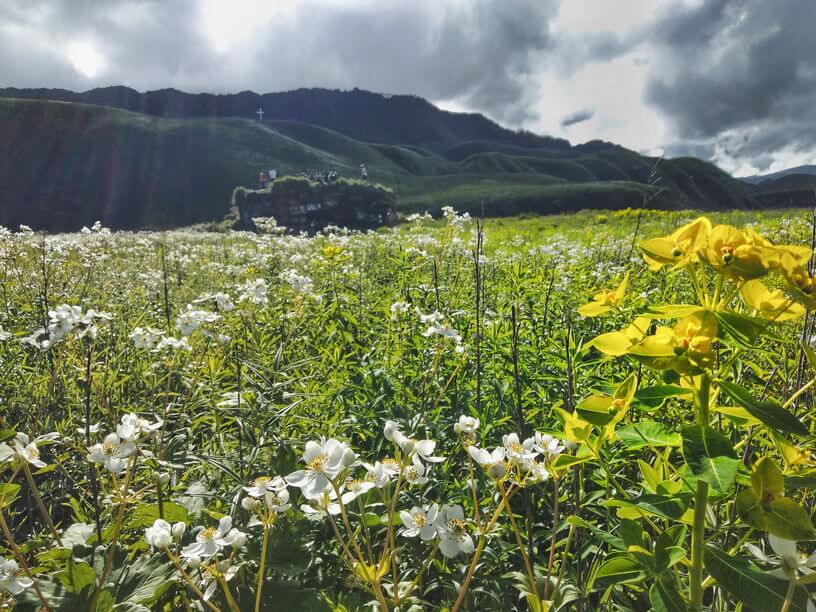
The seasonal flowers bloom during the monsoons and dot the valley in different colors spread across the carpet of dwarf bamboo. The bamboo plants dominate the valley and are known to have suppressed the growth of many other plant species. The endangered Blyth’s Tragopan, also the state bird of Nagaland, is known to silently habitat the woods beyond the valley. The ecosystem of the valley has drastically changed over the years caused by two wildfires in 2012 and 2015.
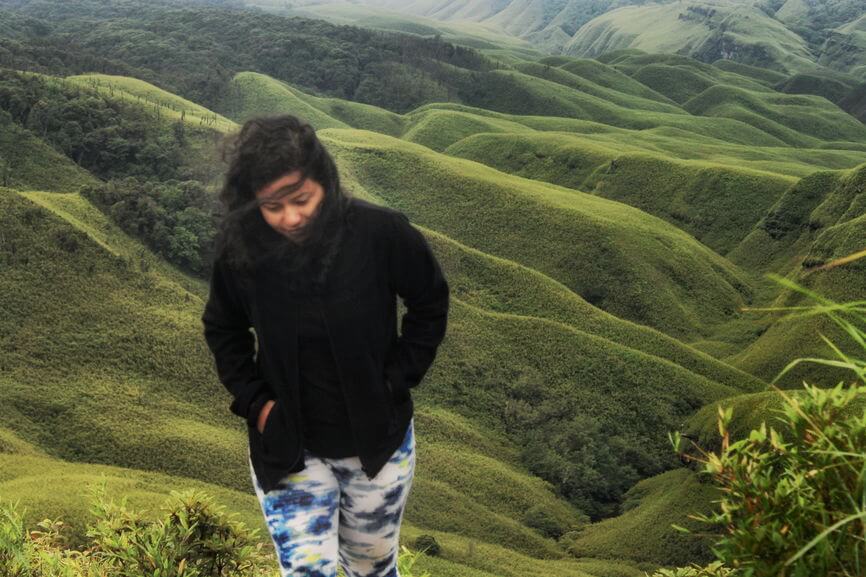
Management of the Valley by SAYO
SAYO stands for Southern Angami Youth Organization, currently managing Dzukou Valley and the guesthouse around the base. Right from providing meals to helping groups find a space for cooking to renting camping essentials, they care of everything. SAYO also banned camping in the valley which is a great move to preserve the essence of the valley.
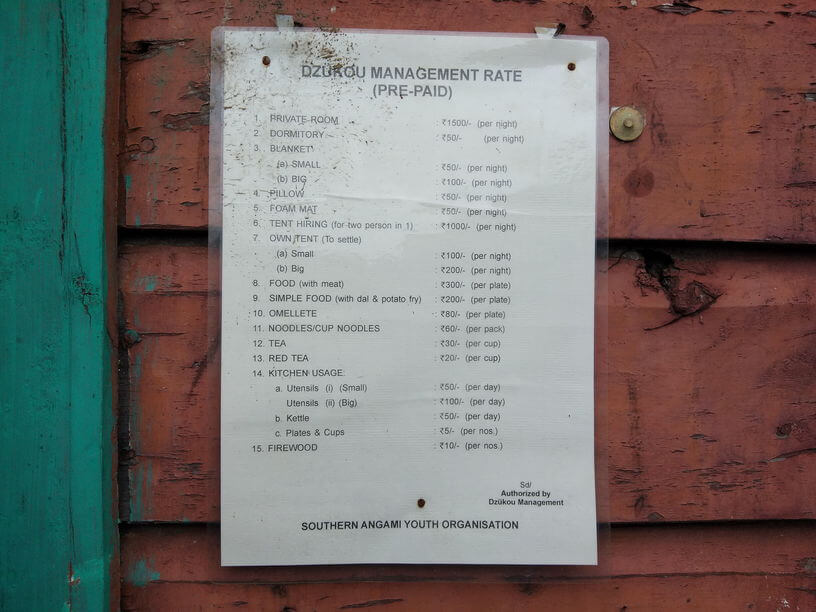
Recently, SAYO also declared the valley as no-plastic zone in a bid to preserve and protect the environment, still fighting with the menace existing plastic has already created. As stated by Mr. Zakieleto Tsukru, President of SAYO, the two major Southern Dzukou entry points, Visvema and Zakhama, will be monitored for implementation of plastic ban. The rates for entry to the valley, renting of things like blankets, mattress, utensils etc., firewood, food, camping, accommodation etc. is all decided and fixed by SAYO.
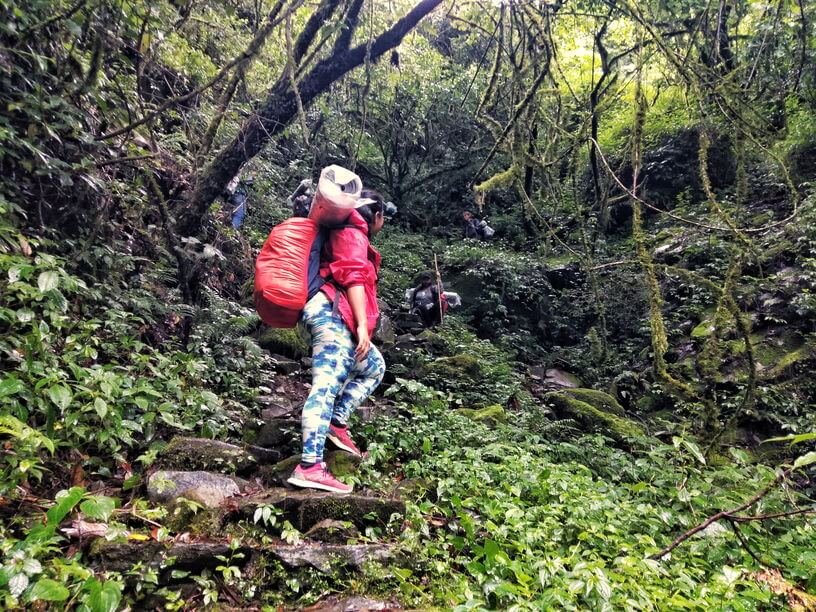
Exploring –Things to Do in Dzukou Valley
The immaculate valley is laid in contours of treeless gentle mounds covered in dwarf grasses, some places dotted with burnt trees standing as reminder of the devastating wildfire. The candy clouds float below the valley at the break of dawn, slowly clearing to make way for the rays of sun, casting a golden hue on the valley.
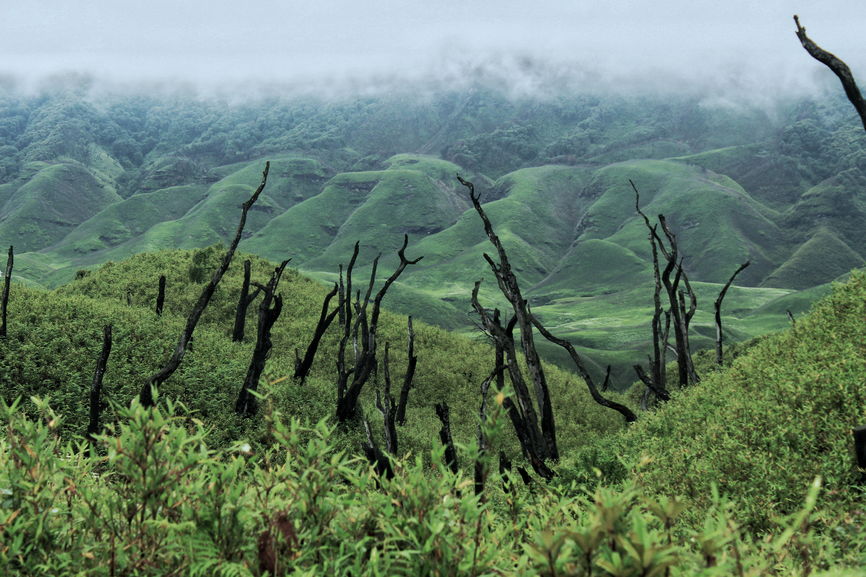
On a perfect sunny day, the valley shines in different shades of green overlooked by the clear blue skies. The winding rivulet flow through the valley with crystal clear water snaking along, perennial waterfalls are tucked in forbidden corners, deep cut ravines and caves, all are perfectly sculpted by nature.
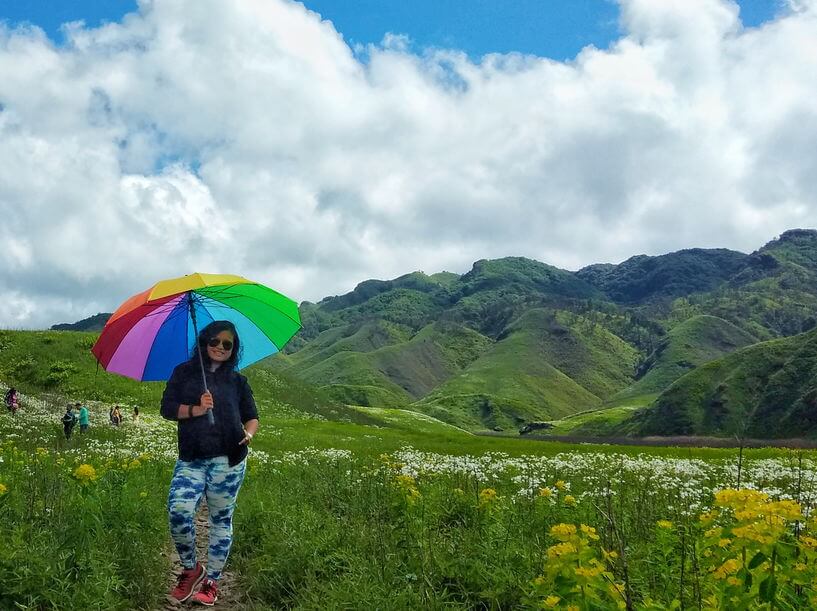
Trek to Bottom of the Valley
The spectacular vista of the valley from the guesthouse located on top of the valley is magical but a trek down the valley open into more spectra of nature. As you climb down, witness the colorful valley sprinkled in flowers, spot the rare Dzukou valley and make all the way up to the huge cross, transcending the flat terrains. The flat land of the valley is surrounded 360° by the rolling hills.
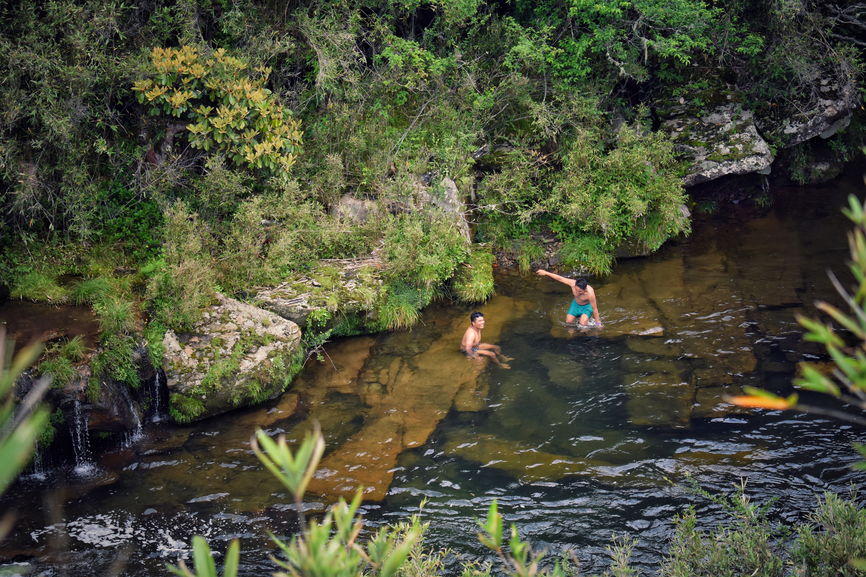
Take a dip in the crystal clear rivulet
The crystal clear rivulet meanders through the valley and becomes shallow towards the centre. It gently flows through rock formations and crevasses tucked in the valley shaping into natural pools. As they run across the valley, the stream takes many forms starting from rivulet to waterfall to water pools. Take a dip and refresh your journey in the valley.
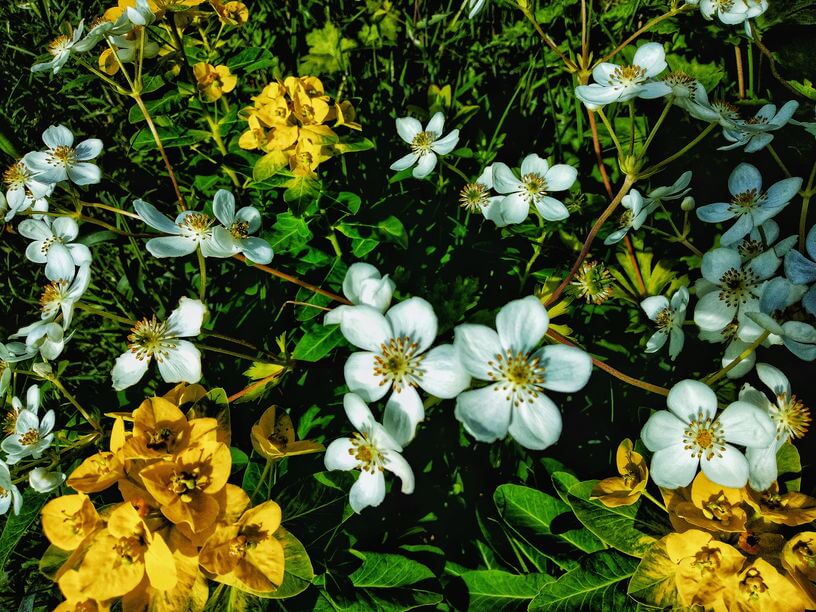
Enjoy the colorful riot of flowers
To witness the valley in full bloom, make sure you visit between the months of May to August, June being the best. Dzukou Valley stands remarkably vivid with blooms in white and yellow, occasionally dotted with blue flowers. The rare Dzukou lily makes its appearance across the valley in sparse location painting the green canvas with sprinkle of pink. With such gorgeous blooms, it is rightly named as “Valley of Flowers in Northeast”.
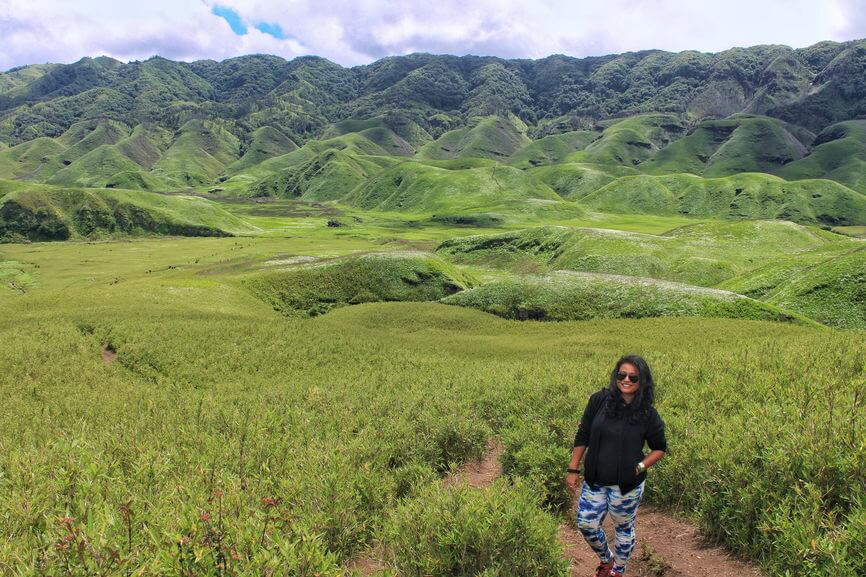
Explore the century old caves
The age old caves sheltered a lot of trekkers and explorers back in days when the valley was a remote dream, a celestial hidden existence. The years of weathering formed these caves and are pretty interesting phenomenon to explore. Some caves are small and right in middle of the bottom of the valley and some are tucked secretly in the lap of the woodlands.
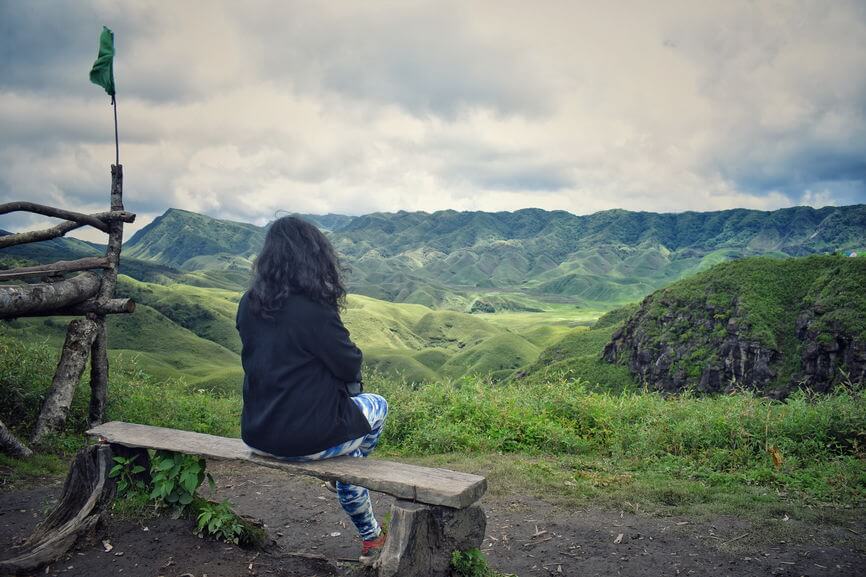
Soak into the celestial beauty of the valley
One of the best things you can do in Dzukou Valley is absolutely do nothing and surrender to the beauty of the moment. Sit and admire the valley, rejoice the air around, live in the moment and get surprised again and again witnessing the round hillocks. From the guesthouse, get a spectacular view of the valley while sipping a cup of coffee or tea.
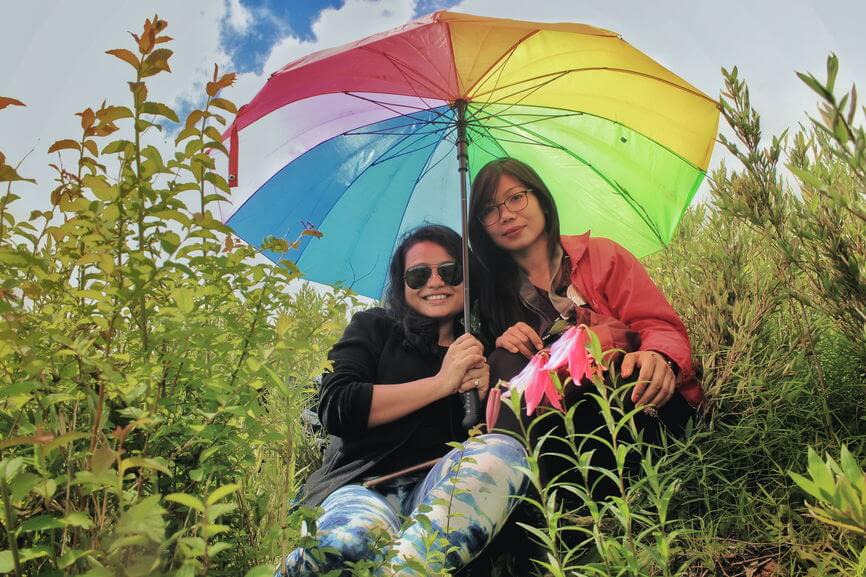
How to reach Dzukou Valley?
Since Dzukou Valley is spanned along Nagaland and Manipur, it can be attempted from either ways but Manipur trail is not marked, quite a strenuous one and needs expertise in mountaineering. Dzukou Valley from Nagaland can be attempted from Southern or Western Dzukou Valley side. The Southern Dzukou Valley trail starts from Zakhama and Visvema Village and for western, it starts from Khonoma Village.
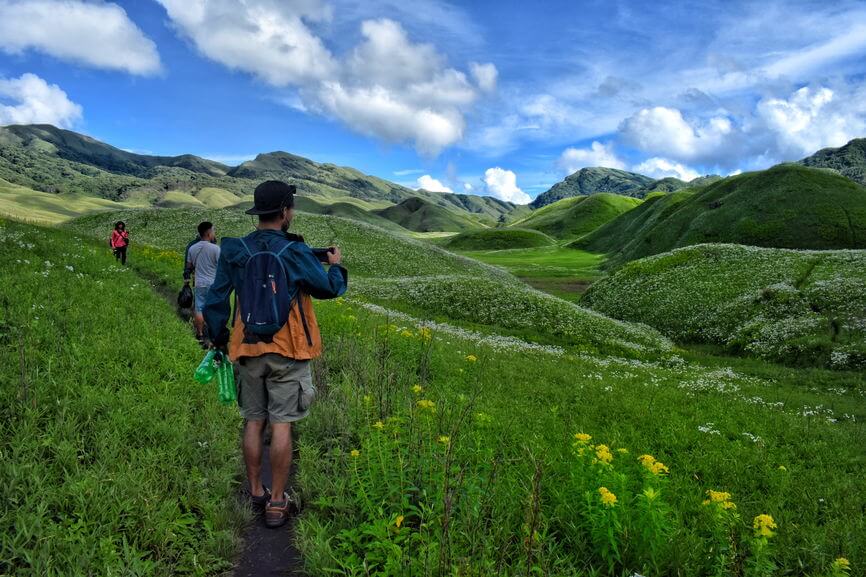
The Southern route is the easiest and maximum attempted with Visvema trail being easiest, more convenient and easily accessible. If you intent to visit Dzukou Valley via Zakhama, be prepared for steep climb of around 4 to 5 hours and 1 or 2 hours of flat land walk. It is not advisable to take Zakhama route during monsoons. Read more about trekking to Dzukou Valley via Zakhama.
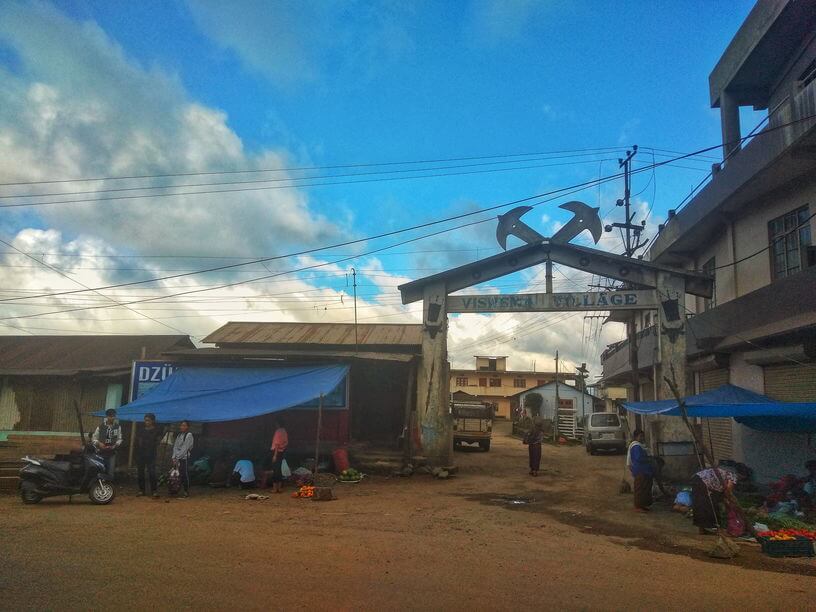
Visvema Route
The Visvema village is the most common base for Southern Dzukou Valley. It is mandatory since June, 2019 to register your name before starting the trek in the registration office. The office is located on left side of the main road, opposite to base of Visvema trail, as you drive from Kohima. The Visvema route of Dzukou Valley goes up towards right from the main road and is motorable till 5 to 7 kms (roads are in very bad condition), beyond which the actual trekking starts on foot. Here are the ways you can reach the base of the Visvema Trail
- If you are planning to do it on your own and in budget, take a shared cab from BOC counter in Kohima and get down at Visvema village. You can either chose to walk all the way up through the motorable road or hitch a ride.
- Second and expensive option is if you have a group of friends; hire a cab that will drop you till the end of the motorable road in Visvema. The same cab will also come and pick you up after you climb down but the both side fare is around Rs 5000/-.
- The last option is join a travel company like Sangai Moonlight Camping where everything is arranged by them as part of the package.
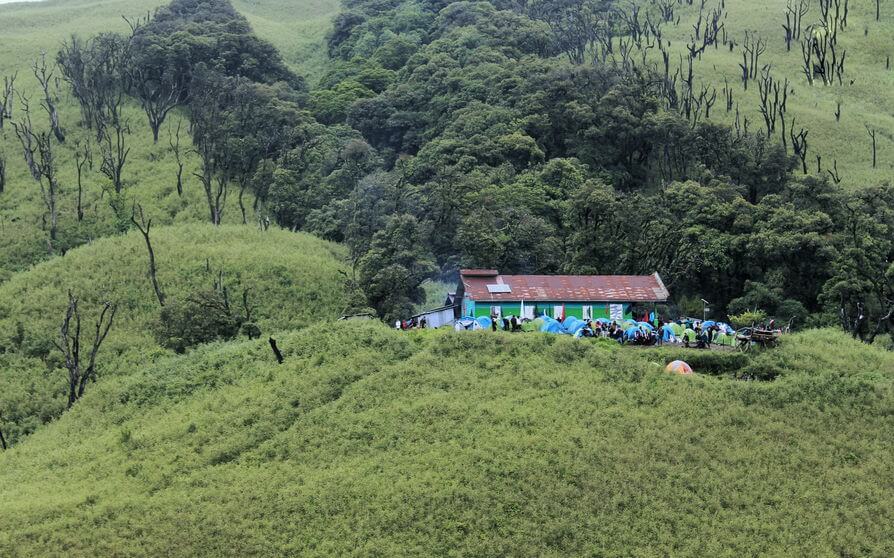
Accommodation – Where to Stay in Dzukou?
Depending on the availability, there are private rooms with very basic amenities at an exorbitant price of Rs 1500/-. However, it is limited to only few rooms and is give first come first basis. Next option is inside the guesthouse that doubles up as dormitory, the foam mattress and blanket can be rented from the management. Also, one can use their own sleeping bag. The last option is camping in tents in designated area. Camping at the base of the valley is not permitted and there is a nominal fee for camping space.
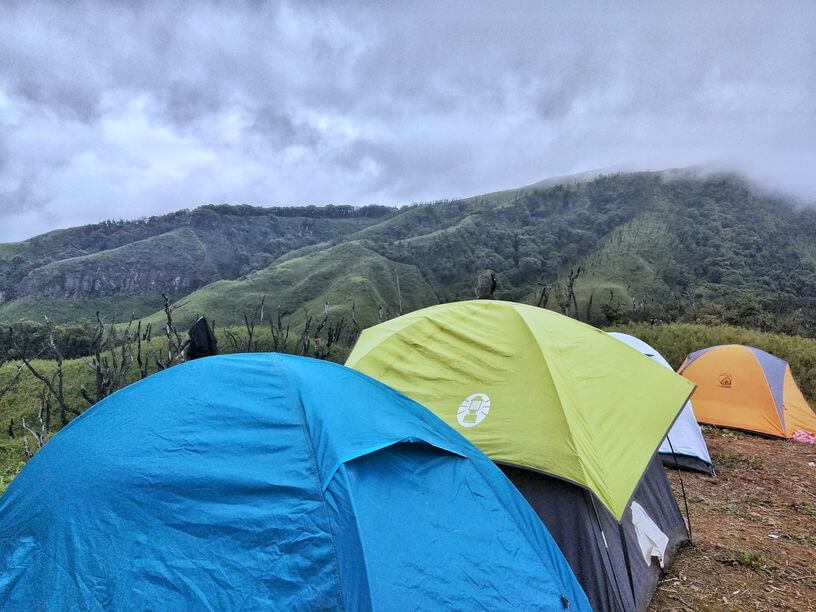
Best time to Visit Dzukou
- April – August – This is the best time if you wish to witness the valley sprinkled with colorful flower blooms. Also, this is the time when the rare Dzukou Valley blooms and lightens up the masterpiece of nature.
- September – November – The valley starts to lose the flowers but it is still green and comparatively dry.
- December – March – The winters cast a different charm as the frost wraps the valley in white during the wee hours of the morning.
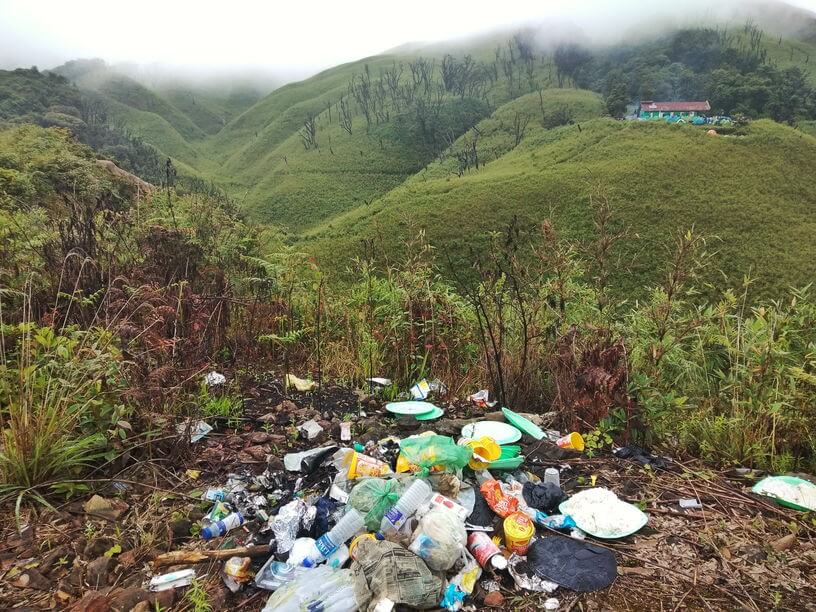
Impact of Over-tourism in the Valley
Awe-inspiring, spectacular and an absolute delight for our ravenous soul – Dzukou Valley bestow to the searching eyes an unconventional paradise, away from the chaos of the morning horns and incessant noise. It stands there silently welcoming every tourist, every bucket list tickers and one picture for social media fanatics. But, the burden of unchecked tourism and camping, the plastics left behind by people and the tons of food waste – The valley is slowly drowning with the eco-system being heavily compromised.
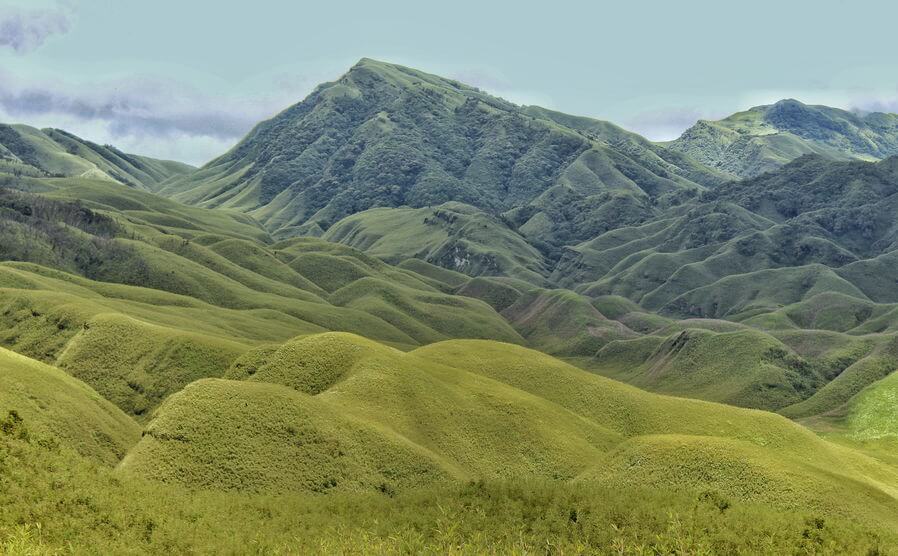
This was my second time in Dzukou Valley while the first was in 2016; it was and still is pristine except, the base of the valley is now hoarded with hundreds of campers. Loud music blares through the speakers suppressing the sound of the gurgling stream. Billow of smoke penetrates mercilessly in the atmosphere from bonfires, introducing pollution in the valley that once breathed in peace and pure air. Oh! The plastic waste buried under the ground, on the surface, in the valley, and around the camping area in the base is getting alarmingly high despite Dzukou Valley declared as plastic free zone.
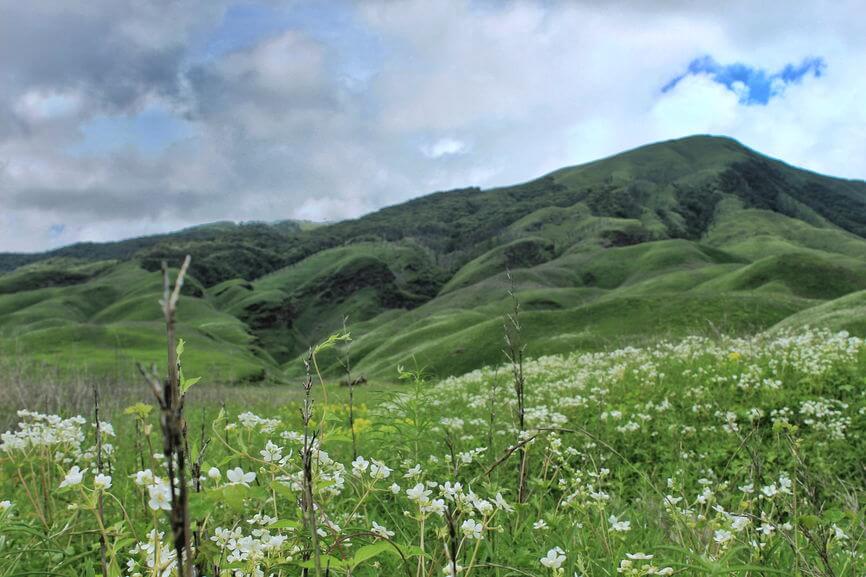
The eco-system has undergone a lot of changes for the valley is not ready to carry the burden of so many people. This year the flowering season arrived a month earlier which might be due to fluctuation in climatic change or shift in the ecosystem. With the increasing food waste dumping out in the open, there is high chance of increasing pest manifestation and introduction of invasive species posing threat for the native fauna. Looking at the bigger picture, if tourism is not checked, the beauty of the valley might become history impacting the wide expanse of flora and fauna.
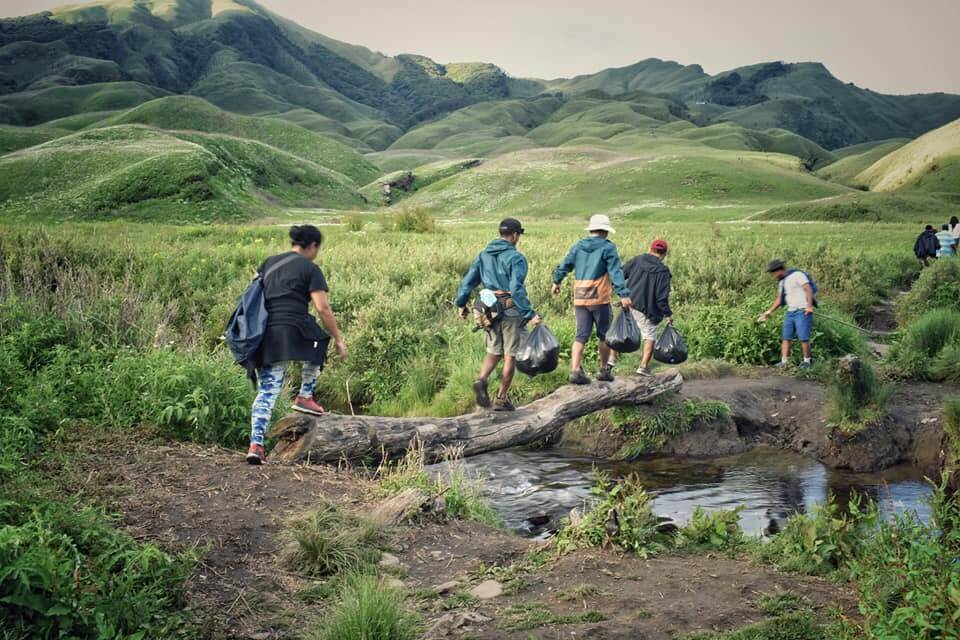
How to maintain the Eco-system of Dzukou Valley?
The picturesque valley is at the peak of its tourism and likely to increase over the coming years. Meanwhile, the viral pictures double up as an opportunity for a lot of people to pocket in money without contributing to the well being of the valley. Few years back, there was not a single tour company organizing trips but with a span of 2 years, the solitude of the desolate valley changed into easily accessible chaos. But, it is never too late and here is what we can do to help the valley revive
CLEAN UP DRIVE WITH TEAM OF SANGAI MOONLIGHT CAMPING
- The management (S.A.Y.O) and Nagaland Tourism must put a capping at number of visitors allowed per day. The restriction will make Dzukou Valley exclusive and will reduce burden on the valley.
- The camping must be allowed only in designated area (which is implied already) and it must be made mandatory for the campers to clean up their area before leaving.
- The travel organizers or tour groups must limit the number of tourists with them. The tour organizers must play their part in organizing clean drive.
- The kitchen space used by campers and tour organizers must be cleaned after use and all the waste material should be compulsorily taken back.
- The food wastage must be minimized and the waste dumping must be done in a pit or closed system to avoid pests and invasive species from posing threat.
- Although Dzukou Valley is declared plastic free zone but the copious amount of plastic everywhere is disturbing. The plastic usage must be better managed; trekkers and tour organizers must be prohibited from carrying plastic.
- Bonfires must be limited so that minimum smoke penetrates into the environment. The smoke and ash increases the pollution and hazardous to health.
- Allow one day every day to heal by prohibiting visitors and closing the entry to the valley. This will give the valley some rest it deserves.
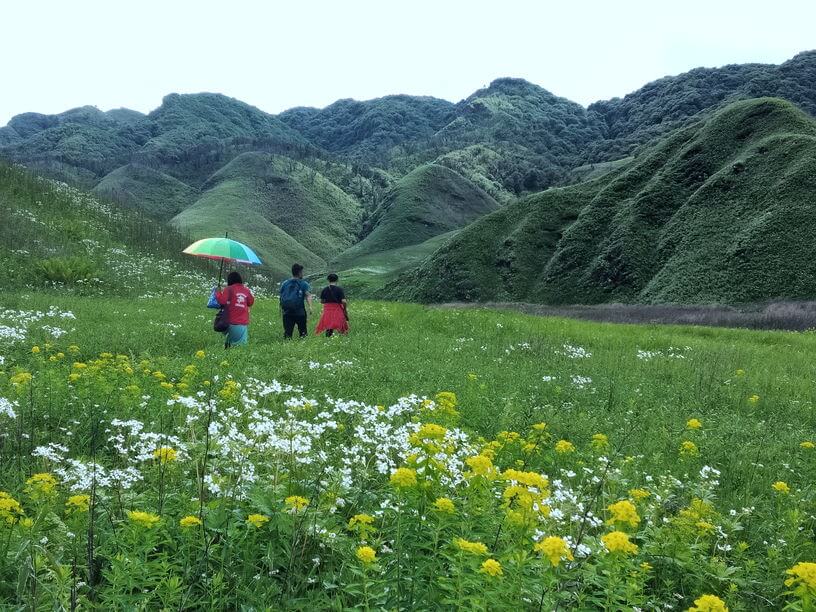
Explore Dzukou Valley with Sangai Moonlight Camping
Sangai Moonlight Camping is a household name in travel and tourism in Manipur with their eco-tourism initiatives and constant war against plastic. I have stayed at their gorgeous Loktak Aquamarine Homestay on Loktak Lake and visited the very remote Kwatha Village along Indo-Myanmar border. My experience with them even this time was great for all the right reasons:-

- Organizing a clean-up drive and continuing their war against plastic. We managed to collect a lot of thrash and buried plastic from the valley.
- Never failed to greet anyone with a smile despite being tired with all the cooking, cleaning and camping set up.
- The team single handedly prepared meals – lunch and dinner for all their guests, irrespective of the smoke burning the eyes in the kitchen area.
- Once the camping was over, the team ensured that the camping area and kitchen was neat and clean, all the waste was collected and brought back.
- You get professional photographs clicked by them and once the trip is over, they send the pictures after editing.
- The team walked us into hidden corners of the valley and into secret ravines tucked in the woodlands.
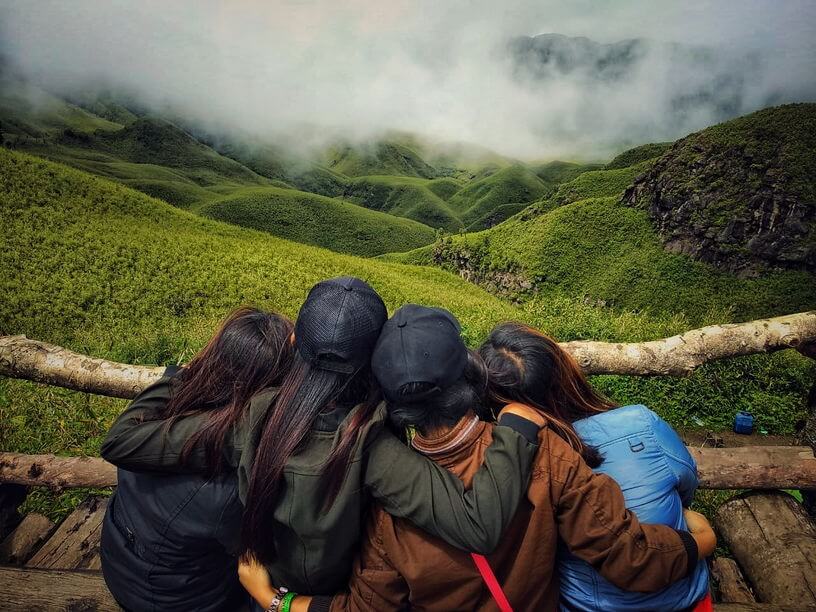
In short, I had an amazing time with the team. It was fun spending time in kitchen, helping them in the chores and listening to Manipuri music. However, due to the experiential tourism initiative and prominent presence in Manipur, the trekking groups with Sangai Moonlight Camping are huge and at times it becomes chaotic with so many people around. So, if you don’t prefer such huge groups, you may contact them directly and they will help you organized a customized trek to Dzukou valley alone or with limited people. You can reach them at – 08014921286 (Ashok Sapamcha).
IF YOU LOVED THE BLOG, PIN THE POST TO READ LATER
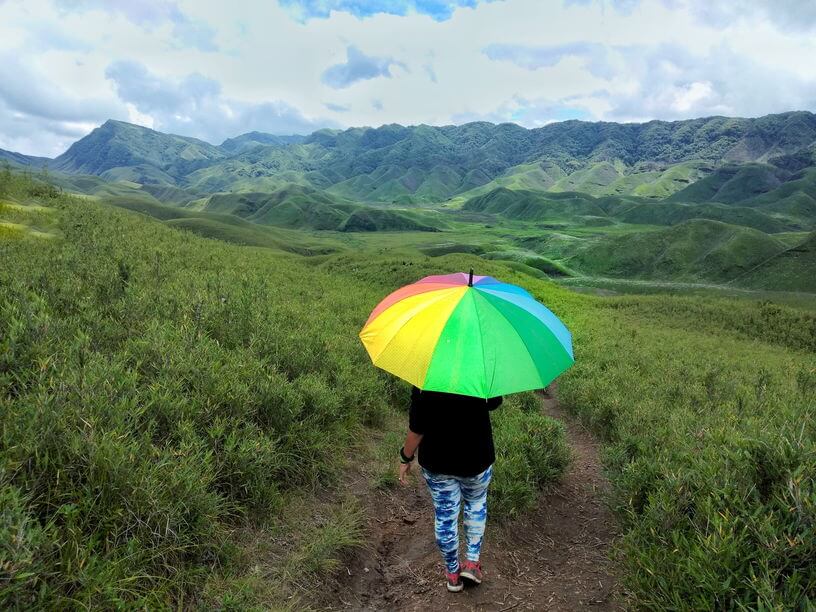
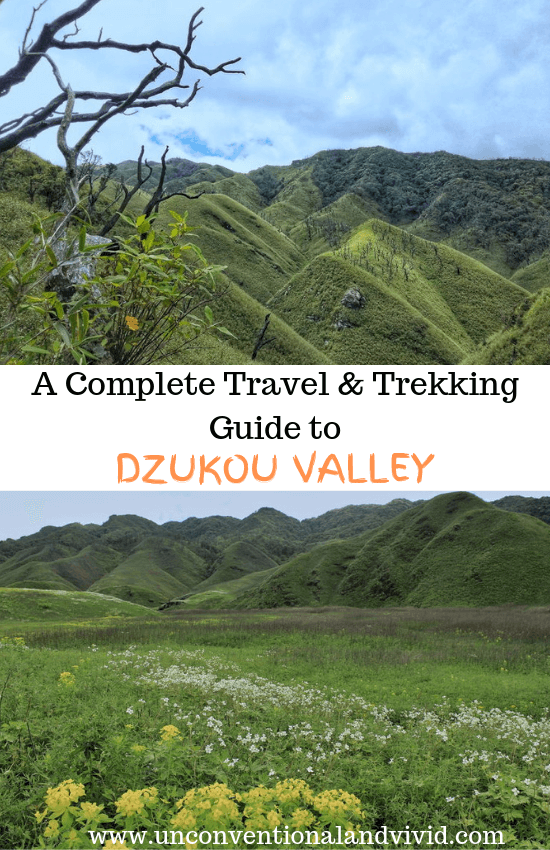
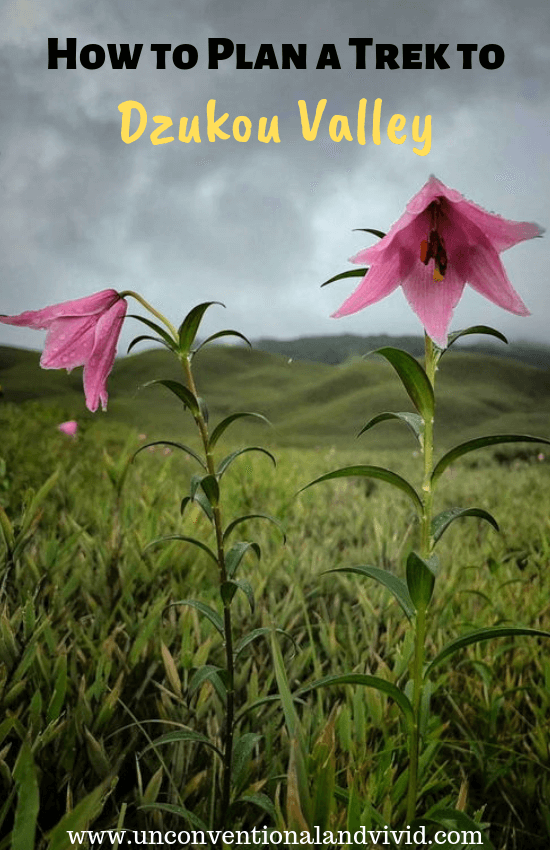
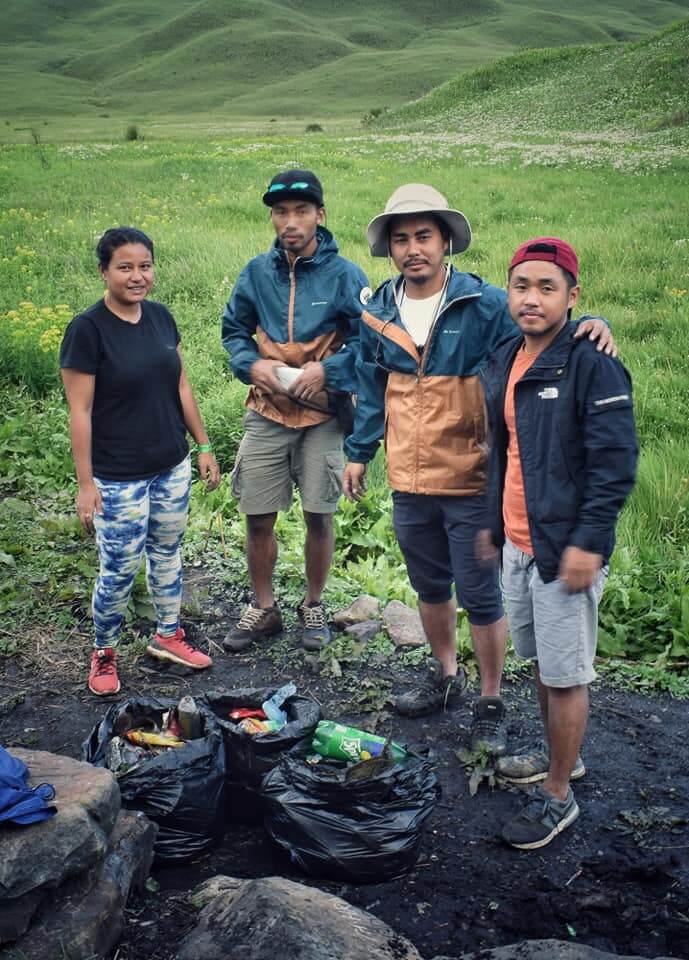
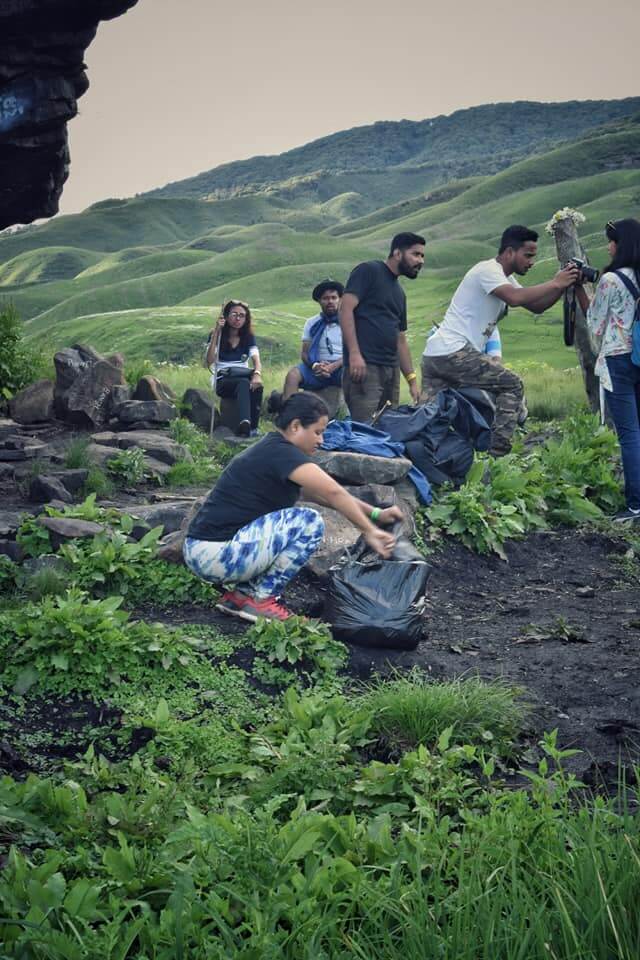
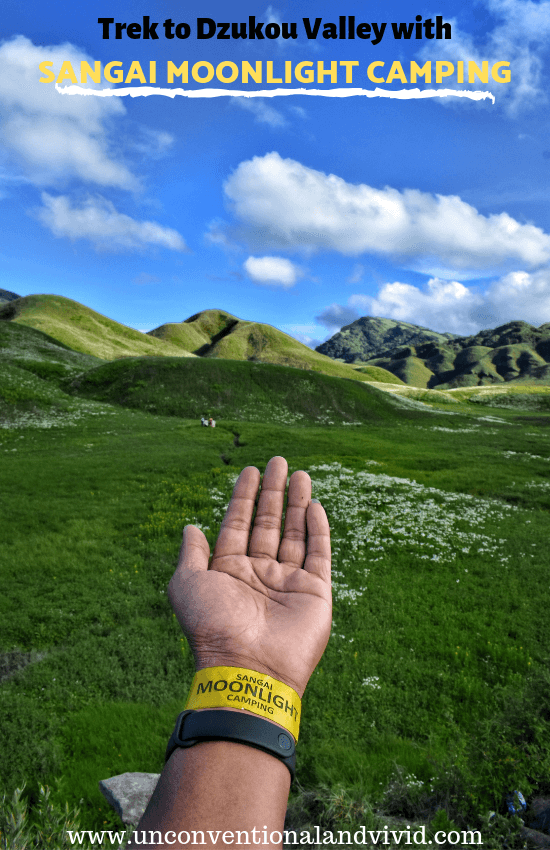
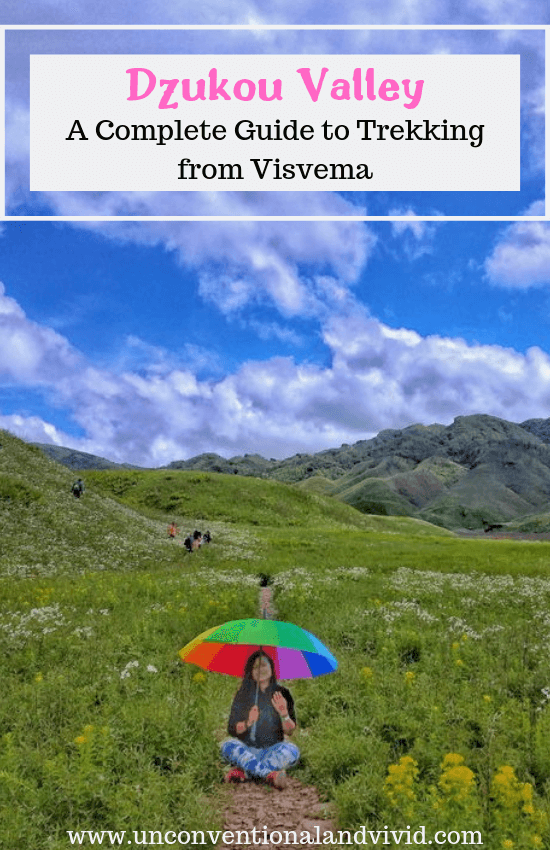

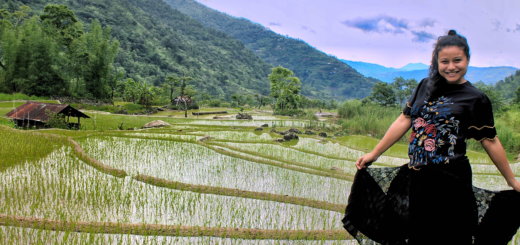
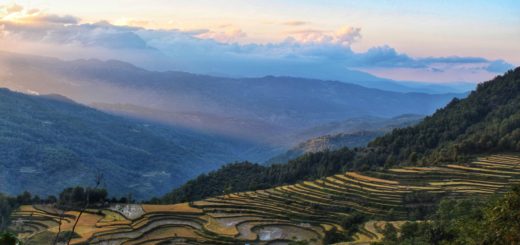
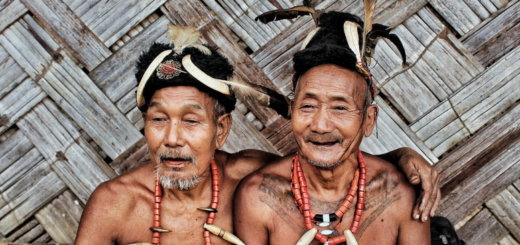

2 Responses
[…] Read the complete blog on Dzukou Valley […]
[…] rolling hills sprinkled with yellow and white blooms stretched along with the stunning vistas of DzukouValley is occasionally dotted with pink Dzukou lilies. As the sun cast its first rays, the valley change […]